‘I’m a crazy fanatic of the music’
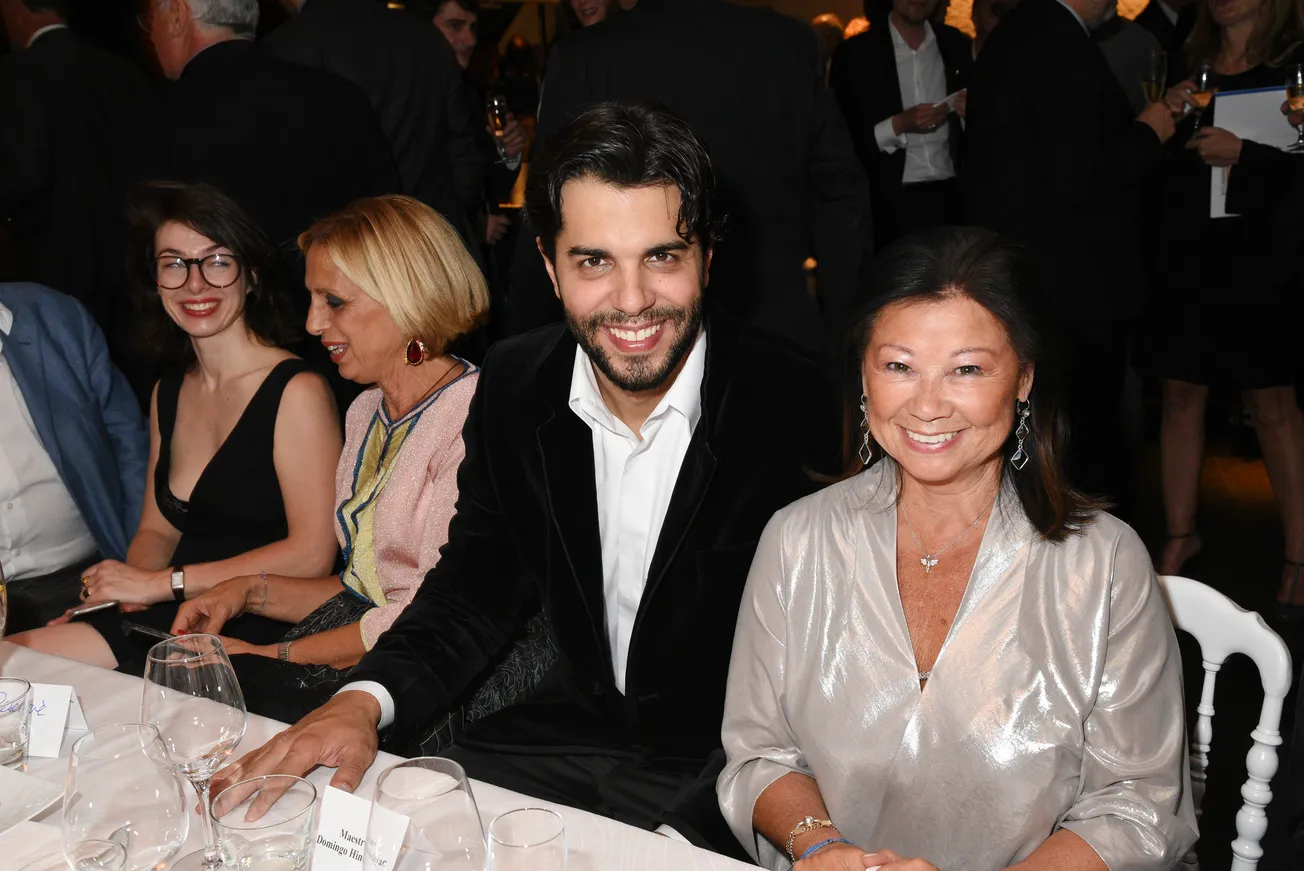
The Philharmonic's new maestro on life in Liverpool and the lucky meeting that gave him his big break
By Joshi Herrmann and Hugh Morris
I meet Liverpool’s new South American star in a functional boardroom in the Georgian Quarter. He’s wearing a dark red jumper and blue trousers, with a Liverpool Philharmonic lanyard around his neck. On the streets outside, his winning smile beams down from posters announcing his arrival in the city and calling him “Liverpool’s latest signing”.
Liverpool is perhaps the only British city where a new chief conductor could be welcomed as anything akin to a footballer, even if the posters bearing the face of Domingo Hindoyan contain a measure of irony. His predecessor, the Russian maestro Vasily Petrenko, was treated with devotion by the end of his 15-year-tenure, in which he turned the Royal Liverpool Philharmonic Orchestra around after a barren spell.
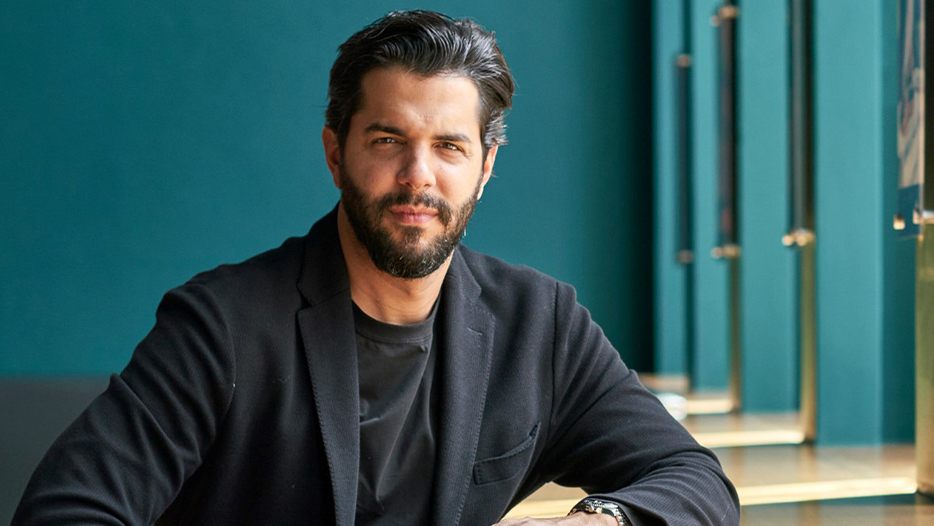
The 41-year-old Hindoyan is one of the rising stars of the classical world and another sparkling export from Venezuela, the country that produces an outsize crop of the world’s best soloists and conductors. He came to Liverpool as chief conductor late last year, after several visits as a guest conductor in which he found there was “a nice chemistry between the orchestra and myself”.
The Philharmonic is a great orchestra that has the potential to be “even greater” he says, making sure not to denigrate his new team. He wants them to develop further by playing new repertoire — French, South American and German — and to deepen their connections with the local community.
Hindoyan is very tall and has the good looks of an actor who would play a Venezuelan conductor in a Netflix drama rather than actually being one. He projects total self-confidence, an essential trait in a job where the slightest hint of doubt can spread through an orchestra like wildfire.
The new maestro is getting to know Liverpool and says he loves the architecture and the food (he’s found a great Venezuelan restaurant in L9). His main base is still in Switzerland, where his children with the Bulgarian operatic soprano Sonya Yonchevaare are at school, but he’s flat-hunting in L1. He’s a Real Madrid fan and declines to take a side between red or blue.
The night before we meet, he conducted Beethoven’s 9th symphony (“Ode to joy”) without a score, despite only having conducted it a couple of times before. It was the first time a full audience in Philharmonic Hall had been able to watch Hindoyan, and they gave him a cacophonous standing ovation. On the podium, he made sharp, concise gestures, but sometimes looked a little restrained, like he was keeping a lid on things.
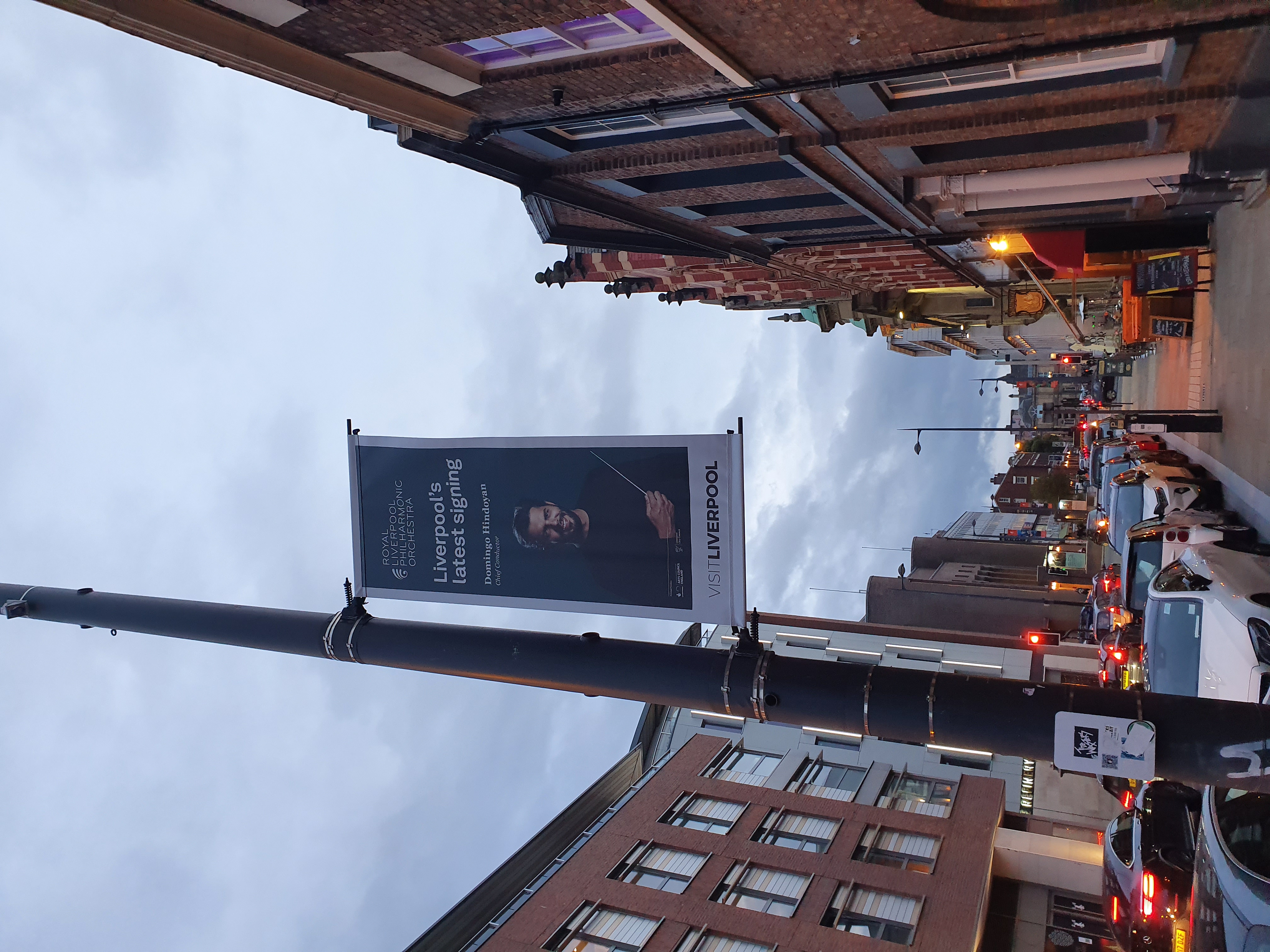
The Venezuelan was born with musical blood in his veins — his dad was the leader of the country’s symphony orchestra — and he came up through El Sistema, the famous state-run training system that has acted as a breeding ground for classical talent. Hindoyan’s school day in Caracas ended at lunchtime, at which point he would get on a bus with his violin and go and play with a Sistema-run orchestra, followed by a lesson at the Sistema-run violin school, followed by a Sistema-organised concert.
“It’s all completely linked — it’s everywhere,” he says about Sistema, which has built classical music into the everyday life of Venezuelan children. In recent years, the system has been dogged by allegations of sexual abuse, which Hindoyan says he didn’t experience or hear about at the time. “My experience was totally positive,” he says. “I think I was lucky to be there.”
His greatest stroke of luck was still to come though. At the age of 20 Hindoyan moved to Switzerland and began to realise that it was conducting he was most passionate about, rather than the violin. A few years later, he was in Lucerne when he heard that the legendary conductor Daniel Barenboim was in town, rehearsing with the Chicago Symphony Orchestra.
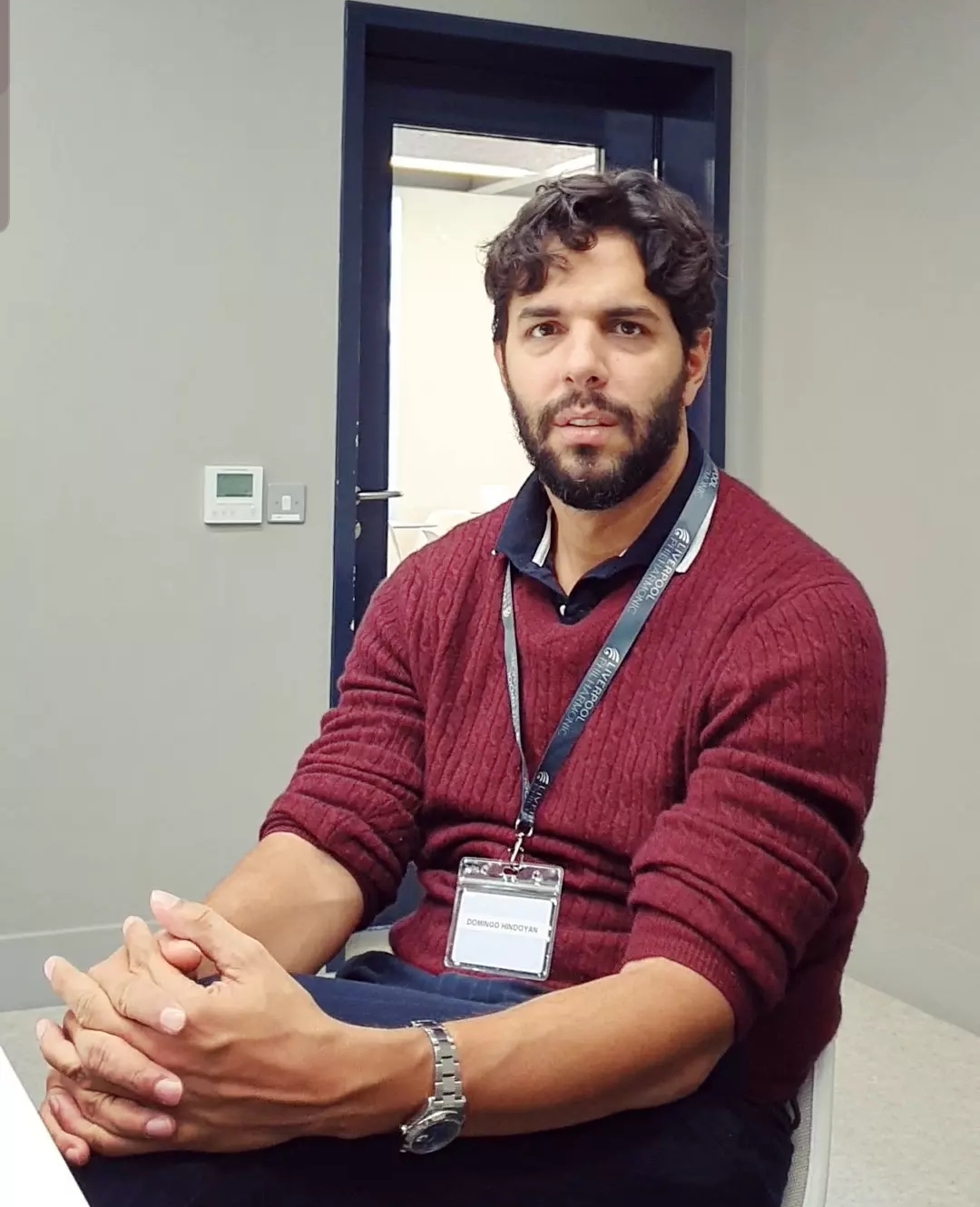
Hindoyan snuck into the rehearsal by turning up with his violin and after it was over a friend who played for the orchestra came over and said “Come, let’s meet maestro backstage.” Barenboim, who is famously irascible, was “in a good mood” and chatted in Spanish. When the legendary conductor spotted Hindoyan’s violin, the young Venezuelan offered to come and play for him in Berlin, but Barenboim wanted to hear him now.
“Take the violin out and play for me.”
“I didn’t have time to be nervous,” says Hindoyan. He played Tchaikovsky’s violin concerto, and when he left the room called his parents to tell them he had just played for Daniel Barenboim. The next day, he had an invitation to join Barenboim’s West-Eastern Divan Orchestra.
That meeting was life-changing. His relationship with Barenboim — who he calls his “artistic father” — would determine the course of his career. “We all have these moments,” he says, thinking back to the fateful encounter in the conductors’ room in Lucerne.
It took Hindoyan a few years to work up the courage to tell Barenboim that he was also a conductor. After seven years with the orchestra, he became Barenboim’s assistant conductor at the State Opera in Berlin.
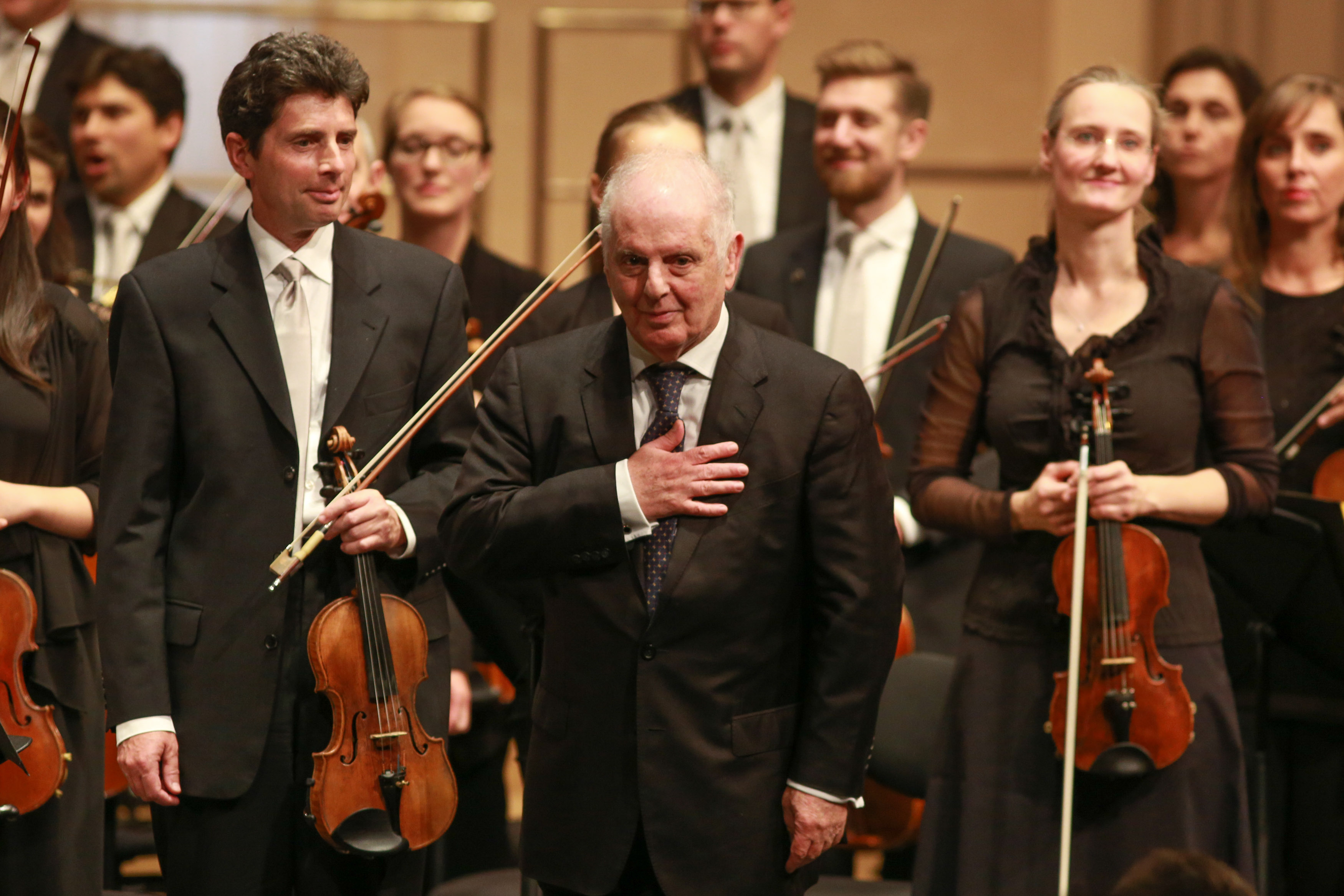
The two men still speak on the phone, sometimes about music Hindoyan is planning to perform. What has Barenboim’s advice been for his new job in Liverpool? “Secret,” says Hindoyan, insisting that he wouldn’t call his mentor to get help solving problems with the Philharmonic. “I would try to solve it myself,” he says.
A couple of players I’ve spoken to have mentioned teething problems in the early months of his tenure — issues you could put down to the new man learning British rehearsal etiquette. Or the players learning his.
British orchestras play a lot of concerts and have to learn huge amounts of music — meaning that they tend to be unusually good at sight-reading and adept at rattling through rehearsals. Hindoyan is said to be a demanding conductor who doesn’t mind criticising players for not giving 100%, even when his band are worn out by their busy schedule. Some wonder whether this is an appointment that is going to last.
There are different styles of orchestral management, from the autocratic to the collegiate, with Barenboim considered to be a representative of the “old maestro” school of conducting. Hindoyan says he is more towards the collegiate end of the spectrum and says that “screaming around” is not his style.
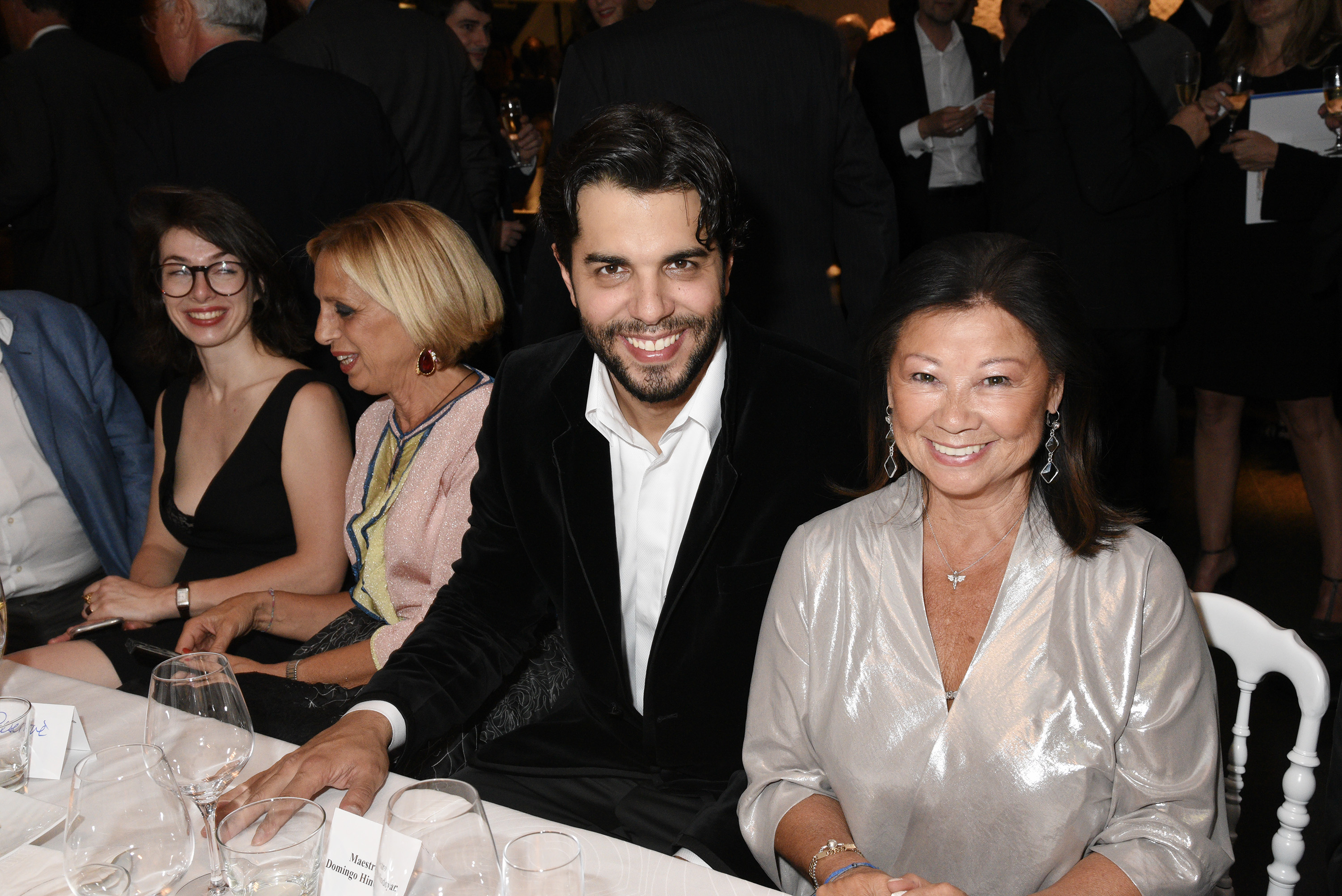
Is he experiencing any problems with the Philharmonic, I ask towards the end of our interview? He stops short of likening his first months here to a honeymoon but says he has a “very steady chemistry” with the orchestra. Is he extremely demanding? “I try to be demanding — I’m a crazy fanatic of the score, of the music,” he says. “So I want to achieve the best, the best, the best, the best, I can. And then I am probably never happy.”
For now, though, the audiences at the Philharmonic seem happy with their new man. He’s in his honeymoon with Liverpool’s concertgoers, at least.
A few weeks after my meeting with Hindoyan, I overhear two grey-haired men discussing him in a café not far from Philharmonic Hall. One of them has asked the other how Liverpool’s latest signing is settling in.
“You know how Petrenko had a certain style?” the man answers. “He has that.”
Further reading: In a church in West Everton, a youthful chamber orchestra tunes up. Mollie reports on the Philharmonic’s efforts to bring music to deprived communities in the city (members-only).
Watch Hindoyan in action: on Sunday 27 February at 2:30pm, the Philharmonic plays Rachmaninov’s second symphony, plus music by Rossini and Dukas.

Comments
Latest
Ghosts, gangsters and giving Liscard a chance
Trust in vaccines has fallen post-COVID. Now Knowsley has a measles outbreak
A Liverpool developer became a Dubai crypto kingpin. Now he’s accused of defrauding investors out of $400 million
Is Liverpool on track for net zero by 2030?
‘I’m a crazy fanatic of the music’
The Philharmonic's new maestro on life in Liverpool and the lucky meeting that gave him his big break